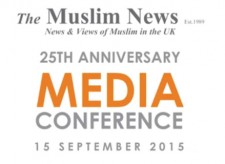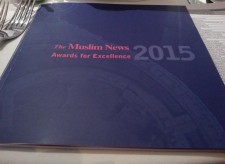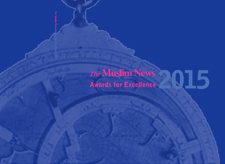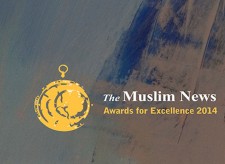(Photo: Ratib Al Safadi/Anadolu Agensi)
Nadine Osman
A double Daesh (ISIS) suicide bombing terrorised a poor and crowded residential area of southern Beirut on November 12, ripping through Burj al-Barajneh, a busy shopping district, killing 43 people in the worst terrorist attack on the Lebanese capital since the civil war.
The terror attack on Burj al-Barajneh came twelve days after the bombing of a Russian airliner over the Sinai Peninsula that killed 224 people and a day before attacks in Paris that killed 129.
The Lebanese Health Minister, Wael Abu Faou, warned that the total casualty count was expected to rise due to some of the wounded people being in critical condition.
Lebanon’s International Red Cross and Red Crescent Society affiliate said that 239 people were injured. Hospitals in the area called for people to donate blood due to an unprecedented number of casualties.
Daesh, also known as the Islamic State, which controls parts of neighbouring Syria, claimed responsibility for the attack. The group portrayed its motives as baldly sectarian, saying it had targeted Shi’a Muslims.
In a post from an unspecified Twitter account, Daesh said that they perpetrated one of the attacks, noting that its agents blew up a bike with explosives in the middle of a street.
“Let the Shia apostates know that we will not rest until we take revenge in the name of the Prophet,” wrote the terror group.
An internet statement on an unspecified site reportedly further stated the “soldiers of the Caliphate” perpetrated the attack.
It mentioned almost as an afterthought that it had targeted the Lebanese resistance group Hizbullah, who also have MPs in the Lebanese Parliament and backs the Syrian Government in the civil war raging next door.
The attack took place in the Bourj al-Barajneh neighborhood a bustling area with narrow streets, many small shops and vendors selling fruits and vegetables from stalls and pushcarts.
Television stations broadcast images of people carrying the wounded away from flaming rubble. The blasts went off near a bakery, and just yards from a hospital.
Amongst the initial casualties were two staff members of the American University of Beirut, according to the school, although no further details were announced.
Three Lebanese-American residents of Dearborn, Michigan – 49-year-old woman and a young couple – were killed, while the couple’s three-year-old son was severely injured.
It was reported that one of the bombs exploded when Adel Termos, a resident of Beirut, tackled one of the bombers, thereby potentially saving many lives. Both Termos and the bomber were killed when the bomb detonated. On social media, Termos was hailed as a hero.
Lebanon’s Prime Minister, Tammam Salam, condemned the “cowardly criminal act that can never be justified.”
He also called on a united front against terrorism, calling on “the Lebanese to be more watchful and united against strife.”
The Government declared the following day a day of national mourning.
The first bombing occurred outside a Shia Muslim mosque, while the second took place inside a nearby bakery before 6pm.
A witness from the area said the bombing occurred near a bakery on the crowded street as people left a nearby mosque after sunset prayers, with the second attack taking place minutes later about 50 metres away.
“There were bodies on the ground, on cars, on motorcycles,” he told the Guardian. “On the floor there were bodies, flesh fragments, heads and feet.”
Footage from the scene of the blast showed chaos, destruction and flames. The wounded were taken to nearby hospitals and the Lebanese army set up a security cordon in the area.
The second blast occurred about 20 metres away and five to seven minutes after the first one as passers-by tried to help the injured of the initial blast. A potential third attacker was killed before exploding his vest. He was found dead with his legs torn off but still wearing an explosives belt, according to an unnamed Lebanese security official.
An unnamed Government employee speculated that he was killed by the second explosion due to his proximity to that blast. Al Mayadeen also reported about the would-be bomber and showed a video of a bearded young man with an explosives belt.
“I carried four martyrs from the scene,” said one man, his clothes caked in blood as he sat on the ground having rushed to the scene after hearing the first explosion.
“There was a lot of destruction,” said another witness. “The area is always crowded and the buildings are right next to each other, and people have been killed by glass and bricks falling on them. If it was a bigger explosion, hundreds could have died.”
“When I got there, flesh was scattered at the scene, chaos, destruction, broken glass, broken balconies,” he added.
On November 15, Lebanese Interior Minister Nuhad Mashnuq said at a press conference that seven of the arrested individuals were Syrian while two were locals.
“One of [the two Lebanese suspects was] a [would-be] suicide bomber and the other a trafficker who smuggled them across the border from Syria,” Mashnuq added.
The forgotten atrocity
When #Beirut citiizens were killed bc of terrorism, NO COUNTRY bothered to light up its landmarks in the colors of the Lebanese flag.
— ريم زيتون (@reemzaitoon_) November 15, 2015
Political and social commentators expressed anguish over the fact that just one of the stricken cities – Paris – received a global outpouring of sympathy akin to the one lavished on the US after the 9/11 attacks.
Facebook offered users a one-click option to overlay their profile pictures with the French tricolor, a service not offered for the Lebanese flag.
Monuments around the world lit up in the colours of the French flag; presidential speeches touted the need to defend “shared values.”
The social network Facebook was also criticised for only activating Safety Check [a feature reserved for natural disasters that lets people alert loved ones that they are unhurt] for the Paris terror attack but they had not activated it the day before for Beirut.
Elie Fares, a Lebanese doctor, wrote on his blog. “When my people died, no country bothered to light up its landmarks in the colours of our flag. When my people died, they did not send the world into mourning. Their death was but an irrelevant fleck along the international news cycle, something that happens in those parts of the world.”
Measuring the global empathy gap: Paris & Beirut https://t.co/cB4nomMYxF pic.twitter.com/npsGcTpUr0
— Denise Law (@deniselaw_) November 19, 2015
The implication, numerous Lebanese commentators complained, was that Arab and Muslim lives mattered less. In the UK, the Leader of the Labour Party, suggested that the media should have given more prominence to coverage of terrorist attacks in Lebanon and Turkey in the wake of the atrocities in Paris on November 11.
Beirut like dozens of places in Pakistan experiences the inequality of global compassion. https://t.co/xsTJ74ElTA
— Syed Talat Hussain (@TalatHussain12) November 17, 2015
Jeremy Corbyn drew attention to recent attacks in Ankara and Beirut and said that “a life is a life” no matter where in the world it was taken.
“I think first of all what happened in Paris was appalling, this is a vibrant, multicultural city, young people of all faiths, and older people as well, all there together, and cultures, and this terrible thing happened,” he told ITV1’s Lorraine programme.
“Likewise, which didn’t unfortunately get hardly any publicity, was the bombing in Beirut last week or the killing in Turkey. I think our media needs be able to report things that happen outside of Europe as well as inside. A life is a life.”
The lower prominence of coverage of the attacks in Beirut and Ankara has been an emerging theme of social media comment of the Paris killings.
Spokesperson of the Secretary-General of the UN, Ban Ki-moon, said he “condemns the terrorist attack today in the Beirut suburb of Burj al-Barajneh. He is deeply saddened at the reported high numbers of fatalities and injured, and extends his condolences to the families of the victims and to the people and Government of Lebanon.”
(Photo: Ratib Al Safadi/ Anadolu Agensi)


















Khairyia AbbasDecember 14, 2015
It’s very tragic that Daesh atrocities in Lebanon and Turkey took a back seat to the Paris terror attacks. I feel that the media sets the tone for global reaction; and by giving such pathetic meager coverage for those who lost their lives in Muslim countries the media is ensuring people in the West become desensitized to the suffering of Muslims.
Perhaps Muslims in the West would not be asked to be in a constant state of guilt if the Western media focused on the tragic tales of Muslim men, women and children who die by the hands of Daesh on a daily basis;